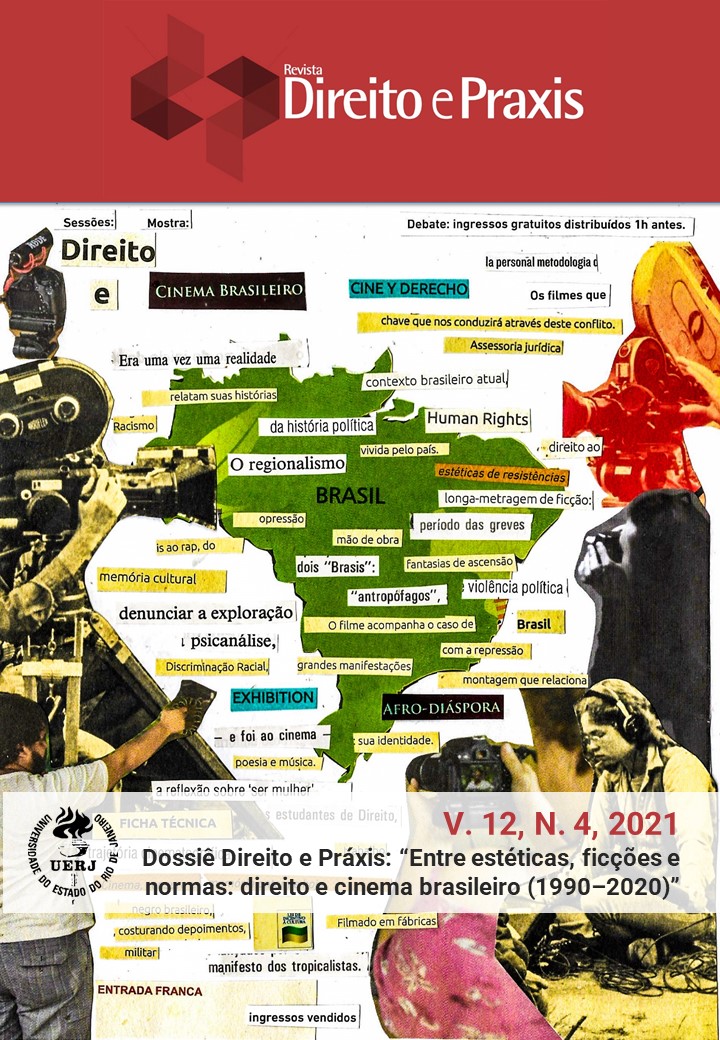Violência e resistência em Bacurau / Forceful and Dusty Magnifying Glasses: Violence and Resistance in Bacurau
Palavras-chave:
Bacurau, tropicalismo, biopolítica, necropolítica, violência, resistência, Walter Benjamin, devir-índio / Bacurau, tropicalism, biopolitics, necropolitics, violence, resistence Walter Benjamin, Indian-becoming.Resumo
DOI:10.1590/2179-8966/2021/62936.
Resumo
Este artigo é sobre Bacurau, filme de Kleber Mendonça Filho e Juliano Dornelles. Ele discute algumas de suas possíveis referências, como o Tropicalismo, a literatura de Guimarães Rosa, o Cinema Novo de Glauber Rocha e a obra de arte de Helio Oiticica, a fim de sublinhar o encontro do primitivo com o popular, da tecnologia com a cultura de massa. Apesar da radicalidade das dimensões biopolíticas e necropolíticas e do seu desdobramento numa espécie de necrocapitalismo, este artigo pretende propor algo mais a respeito da violência infringida pela comunidade de Bacurau: primeiro, a idéia de violência literal ou imanente, principalmente ao lançar uma nova luz sobre a noção de violência divina de Benjamin; segundo, ao se deslocar da violência imanente à ação e resistência. A resistência compreendida como um movimento extraordinário e ordinário realizado individual ou coletivamente pela comunidade de Bacurau. Considerando que Bacurau não é apenas uma comunidade local no sertão do nordeste do Brasil, mas pode ser qualquer outra comunidade no mundo, concluímos -de forma não conclusiva-, a partir da noção de “devir-índio” de Viveiros de Castro como aquilo que Bacurau nos encoraja a fazer.
Palavras-chave: Bacurau, tropicalismo, biopolítica, necropolítica, violência, resistência, Walter Benjamin, devir-índio.
Abstract
This article is on Bacurau, a film by Kleber Mendonça Filho and Juliano Dornelles. It discusses some of its possible references such as Tropicalism movement, Guimarães Rosa’s literature, Glauber Rocha’s New Cinema and Helio Oiticica’s work of art in order to stress the encounter of the primitive and the popular, of technology and mass culture. Despite the radicality of biopolitical and necropolitical dimensions and their unfolding into a kind of necro-capitalism, this article aims at proposing something else concerning the violence infringed by Bacurau's community: first, the idea of literal or immanent violence, mainly by throwing new light into Benjamin’s notion of divine violence; second, moving from immanent violence towards action and resistance. Resistance as an extraordinary and ordinary movement performed individually or collectively by Bacurau’s community. Considering that Bacurau is not just a local community in the Backlands of northeast Brazil but can be any other community in the Globe, we conclude -in a non-conclusive manner- taking Viveiros de Castro’s notion of “Indian-becoming” as that which Bacurau encourages us to do.
Palavras-Chave: Bacurau, tropicalism, biopolitics, necropolitics, violence, resistence Walter Benjamin, Indian-becoming
Downloads
Downloads
Publicado
Como Citar
Edição
Seção
Licença
Os textos são de exclusiva responsabilidade de seus autores.
É permitida a reprodução total ou parcial dos artigos da Revista Direito e Práxis, desde que citada a fonte.
Este trabalho está licenciado sob uma Licença Creative Commons 4.0, Atribuição-Sem Derivações.
Esta licença permite copiar e redistribuir o material em qualquer suporte ou format para qualquer fim, mesmo que comercial, desde de que citada a autoria original.
This work is licensed under a Creative Commons Attribution 4.0 International License.




